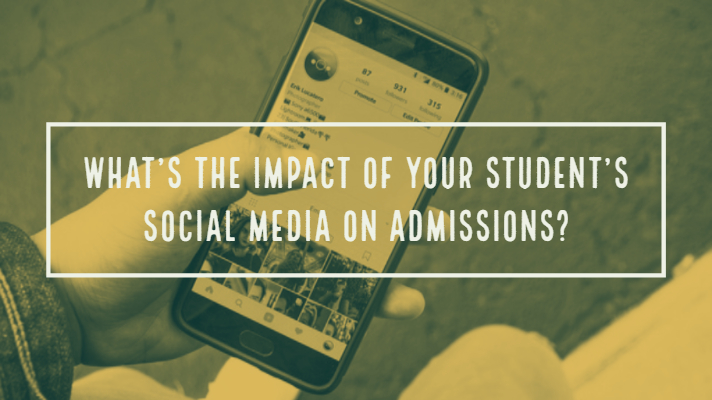
According to Kaplan Test Prep’s annual survey of admissions officers, more than two-thirds of colleges (68 percent) say that it’s “fair game” for them to visit applicants’ social media profiles like Facebook, Instagram, and Twitter to help them decide who gets in — despite the fact that less than a third actually engage in the practice. Notably, students agree: a separate Kaplan survey of over 900 high school students finds that 70 percent consider social media profiles “fair game” for admissions officers evaluating applicants — an increase from 58 percent in 2014.
Admissions officers who say it’s “fair game” shared the following reasoning:
- “Employers do it all the time. Colleges can do it as well.”
- “I think if things are publicly accessible without undue intrusion, it’s OK. If it’s searchable, it’s fair game.”
- “We don’t do this, but we could. I think high school seniors make poor choices sometimes when they put stuff online.”
Admissions officers who said they viewed this as an “invasion of privacy” shared the following:
- “Their application should be the sole decider.”
- “We use social media for recruitment, not admissions.”
- “We only look at social media if the applicant includes or provides it.”
But while a strong majority of admissions officers are ideologically comfortable with this practice, only 29 percent say they have actually done it — a decline from 35 percent last year, and down from a 40 percent high watermark in Kaplan’s 2015 survey. But this isn’t because admissions officers are necessarily forbidden from doing it, as only 20 percent say that their school has official guidelines or policies; and of that 20 percent, only 33 percent are not permitted to do so.
Yariv Alpher, executive director of research for Kaplan Test Prep, noted that some of the decline can likely be attributed to changing social media habits, as teens have migrated from Facebook to non-archival social media platforms like Snapchat.
“You cannot visit an applicant’s social media profile if you can’t locate them, and as one admissions officer shared with us, ‘Students are harder to find.’ They’ve gotten savvier in hiding or curating their social media footprints, even as they’ve become very comfortable with the notion of having a digital presence to begin with. By the same token, colleges have largely become comfortable, in theory, using social media to help them make admissions decisions,” said Alpher. “That said, in practice, the strong majority are sticking with the traditional elements of the application, like standardized test scores, GPA, letters of recommendation, and personal statements, which still overwhelmingly decide an applicant’s path. For most, these traditional factors provide enough useful information to make a decision, like it has for generations of their predecessors.”
And lest applicants think that what they post online can’t be held against them once they are already accepted, they should think again. Nearly one in 10 (nine percent) admissions officers say they had revoked an incoming student’s offer of admission because of what they found on social media. This finding comes on the heels of Harvard University’s decision last year to revoke the acceptances of at least 10 students for posting highly offensive memes on a private Facebook group for incoming freshmen.
Here’s a short video illustrating the survey results:
